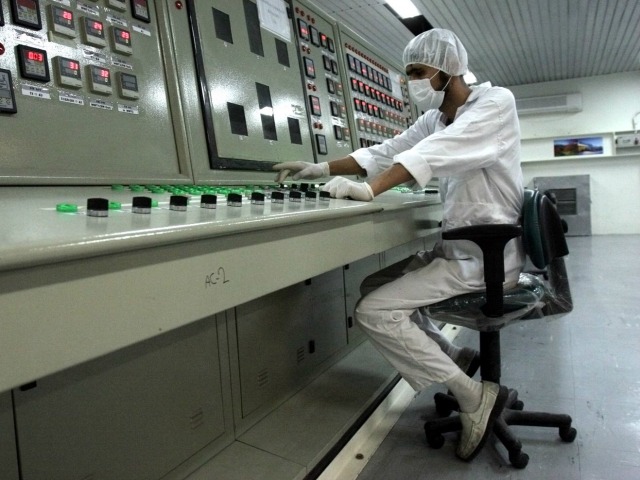The Institute for Science and International Security (ISIS) has alleged that Iran may have subverted a nuclear enrichment deal struck last year with world powers.
Last year, the P5+1 countries signed a deal that the New York Times described as one that guarantees the dismantling of certain centrifuges. The deal also supposedly mandated that Iran would convert fuel resources so that nuclear bombs could not be created from the material.
The ISIS report shows that Iran may have created machinery that allows for faster uranium enrichment, which means they could speedily pursue the weaponization of its nuclear program.
Additionally, a former International Atomic Energy Agency (IAEA) official has warned that Iran likely has hidden thousands of centrifuges from the nuclear watchdog’s eyes.
Twenty-seven-year IAEA official Olli Heinonen, who now serves as a senior fellow at the Harvard University Belfer Centre for Science and International Affairs, told The Sunday Times: “They have manufactured 1000 IR-2m centrifuges that the IAEA is aware of and the negotiations with the US are going to focus only on the known 1000 IR-2m and 18,000 IR-1 and not the additional centrifuges.”
He added:
There are indications Iran has acquired carbon fibre, the key raw material for the advanced IR-2m centrifuges, to manufacture several thousand. The IAEA has seen 1000 of them in Natanz and the key question is: where are the rest? It is important to have in this verification scheme an agreement that the IAEA can also verify all the centrifuges in Iran and not only those which are in Natanz or Fordow.
Over the weekend, U.S. Secretary of State John Kerry met with Iranian Foreign Minister Javad Zarif in Oman to discuss a comprehensive nuclear agreement.
On Sunday, President Obama told CBS program Face the Nation regarding the Iranian nuclear negotiations: “Are we going to be able to close this final gap so that they can re-enter the international community, sanctions can be slowly reduced, and we have verifiable lock-tight assurances that they can’t develop a nuclear weapon? There’s still a big gap. We may not be able to get there.”

COMMENTS
Please let us know if you're having issues with commenting.